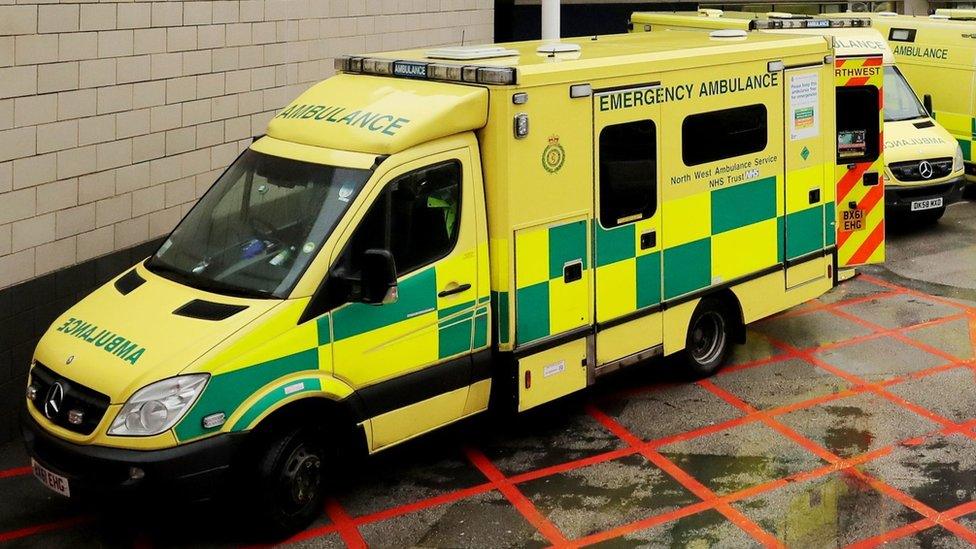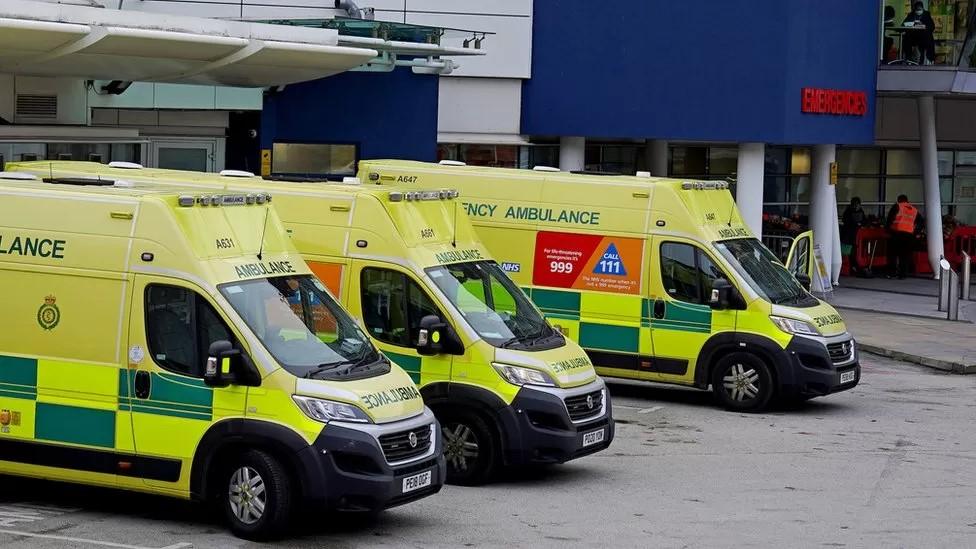North West Ambulance Service still extremely busy - director
- Published

Mr Blezard said NWAS's ability to respond to patients "as quickly as we would like is still an issue"
An ambulance service has issued another urgent plea to think before calling 999 and 111 while crews face a "significant" amount of calls.
North West Ambulance Service (NWAS) said in the past day, the 111 service mainly been contacted about repeat prescriptions and sore throats.
It said crews were "extremely busy" after severe weather and handover delays caused problems on Monday.
"We are not where we want to be yet," operations director Ged Blezard said.
An NWAS representative said as of Tuesday afternoon, there were more than 300 patients waiting for an ambulance, which had reduced from 600 at 17:00 GMT on Monday.
They added that more than 40 emergency vehicles were waiting at hospitals to hand over patients.
Allow X content?
This article contains content provided by X. We ask for your permission before anything is loaded, as they may be using cookies and other technologies. You may want to read X’s cookie policy, external and privacy policy, external before accepting. To view this content choose ‘accept and continue’.
They said NWAS was grateful to the public for using the 999 service for only life-threatening emergencies, but people needed to think carefully before contacting the 111 service.
They said the majority of conditions people were calling with could be assessed and supported by the NHS's online service, external.
Mr Blezard said NWAS's ability to respond to patients "as quickly as we would like is still an issue".
He said the problems were "mainly due to the continued severe weather and hospital handover delays", which were tying up crews at hospital sites and "making it difficult to get to other vulnerable people in the community".
"We urge the public to continue to follow our guidance on when to use our services," he added.
"We are not where we want to be yet and supporting patients with life-threatening conditions remains our priority."
'Unacceptable'
Labour's Shadow Health Secretary Wes Streeting said it was "shocking" that it was "no longer the case that patients can call 999 safe in the knowledge that an ambulance will arrive at all, let alone on time".
Health Secretary Steve Barclay said previously that ambulance delays represented "a material risk" and stressed it was important to fix the flow of patients through hospitals.
A Department of Health spokesman said: "These levels of performance are clearly unacceptable, and patients deserve access to the highest-quality urgent and emergency care.
"That is why we are prioritising health and social care with up to £14.1 billion over the next two years, on top of record funding."

Why not follow BBC North West on Facebook, external, Twitter, external and Instagram, external? You can also send story ideas to northwest.newsonline@bbc.co.uk
Related topics
- Published12 December 2022
